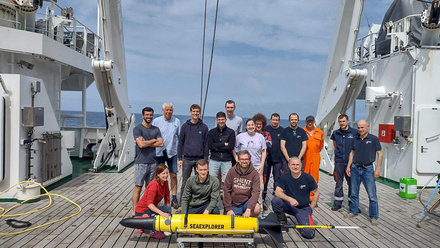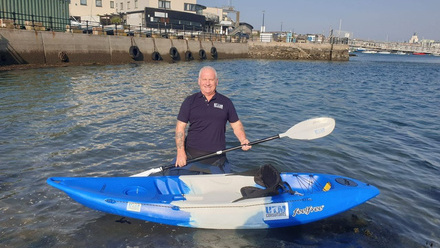Principal Engineer: ‘My professional experience is formally recognised’
In the second of our interview series on the benefits of chartership, we met up with Rob King, Principal Engineer at BMT, the maritime engineering design experts.
Why did you become chartered?
I have been working in the field of marine engineering since 2004 when I joined the Royal Fleet Auxiliary (RFA) as an engineering cadet. On leaving the RFA after 10 years, I had a Class 2 certificate of competency, and my highest academic qualification was a HND and I was an Engineering Tech with IMarEST.
I joined BMT in 2014 and have been involved in a range of projects from technical documentation updates to design management and sea trials on the Queen Elizabeth Class aircraft carriers.
In 2016, I achieved Incorporated registration and continued to gain and develop knowledge and experience.
The route to becoming chartered in 2023 gave me a framework to transition from the practical hands-on engineering onboard a ship to the more academic and conceptual side of consulting engineering. This has been a way of demonstrating the academic equivalence of my past experience. Becoming chartered opens up more opportunity to share and use this experience on future projects.
What was the application process like?
The application process from submitting my CV to the professional development report was straightforward, and I received regular updates from the IMarEST membership team, through each of the stages.
How long did the process take in total?
Nineteen years from start [of my career] to being chartered.
In terms of the application process, I submitted my application in December 2022, the individual case panel was in February , my professional review interview in March and the result was confirmed by the 24th March 2023. So, four months in total.
What was the hardest element of becoming chartered?
The biggest challenge applying on the experiential route was knowing what to write and how much. In addition, understanding what evidence was required to demonstrate the academic equivalence.
My early versions were long because I wanted to demonstrate the variety and depth of [my] experience. When I asked for support from peers to review the report they directed me to tailor it down to specific activities, solutions, and outcomes for the evidence I wished to present. I used IMarEST Echo to capture CPD, so I had the records of my development over time and subsequently re-wrote the report in the latest format provided by IMarEST.
What have been the main benefits of being chartered?
For me the main benefit is that my professional experience had been formally recognised, and this will give me a greater range of opportunities in the future.
Would you recommend becoming chartered to your colleagues?
Absolutely, not just because of the result but also it gives you an opportunity to grow and develop along the journey. By completing regular reflections of your roles, it helps to identify where your strengths and weakness are, informing your future development.
To enquire about chartership, contact the IMarEST’s Membership Team at [email protected].





